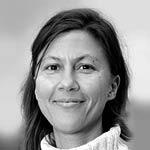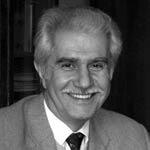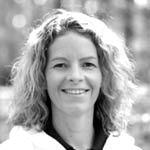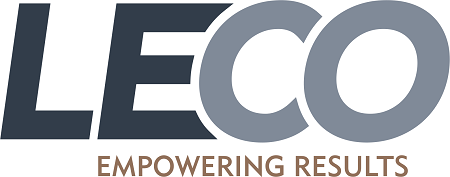For a large number of people, the unknown is a crippling thought, and being unable to clearly identify a smell, taste or object, for most people, is a warning to keep clear. However, for mass spectrometrists, the unknown is an invitation.
LECO and GC/MS experts Jane Hill, Albert Lebedev and Shari Forbes serve up a virtual symposium tackling the eerie side of mass spectrometry.
Disease: Trick or Treat? Metabolomics is Changing How We Monitor Our Health
Jane Hill, from the University of British Columbia, brings her expertise on ‘omics and medical diagnostics in Disease: Trick or Treat? Metabolomics is changing how we monitor our health

Jane Hill, University of British Columbia. Image Credit: LECO Corporation
Jan’s life began in rural New South Wales, Australia. She went to high school in Grenfell, the birthplace of the renowned Australian poet Henry Lawson.
After moving to the United States for college and completing a BSc in Chemical Engineering and technical MBA (both at Rensselaer), her time was spent running a small, local bioremediation company in central New York State for a number of years.
However, she wanted to delve deeper into the world of microorganisms that marked the transformations of pollutants in the soil. So, she embarked on her Ph.D. journey at Yale University with Water Treatment Technologist Menachem Elimelech and worked closely with Biotechnologist Jordan Peccia at Yale during her post-doctoral position.
After a decade of evaluating and measuring how organic phosphorus compounds were cycled in the environment, Jane then turned her investigation toward infectious diseases and metabolomics.
During her spare time, Jane is a keen tennis player and enjoys hiking with her dog, gardening, skijoring, reading books and poetry, playing music, as well as traveling... and, of course, pondering over microbes. When possible, she would like to learn how to kitesurf ... even though it scares her half to death.
What Mass Spectrometry Can Tell You About 5,000-Year-Old Mummies
Albert Lebedev, professor at the Faculty of Chemistry at Moscow State University, has some advice and suggestions for what to do if you a faced with an ancient mummy (and happen to have access to mass spectrometry) in What Mass Spectrometry can tell you about 5000 year old Mummies.

Albert Lebedev, Professor, Faculty of Chemistry, Moscow State University. Image Credit: LECO Corporation
Professor of the Chemistry Department of the Moscow State M.V. Lomonosov University (Moscow, Russia), Lebedev is head of the laboratory of Organic Analysis. He received his Ph.D. in 1982 and DSc in 1992 from the Moscow State M.V. Lomonosov University in organic chemistry.
Having published over 250 scientific papers and reviews and contributed to more than 200 scientific presentations all over the world, he is a seasoned pro. Lebedev also directs undergraduate and graduate research and has taught in the field of organic chemistry and physicochemical methods in organic and environmental analysis at the same University.
His published work included several books as both writer and editor on mass spectrometry, including “Methods and Achievements of Modern Analytical Chemistry” (Lan, 2020), two editions of “Mass Spectrometry in Organic Chemistry” (Binom, 2003; Technosfera, 2015), “Basics of Mass Spectrometry of Peptides and Proteins” (Technosfera, 2012), and “Comprehensive Environmental Mass Spectrometry” (ILMPublications, UK, 2012).
He actively utilizes the fundamentals of mass spectrometry (environmental applications, proteomics, gas-phase reactions) throughout his research and teaching positions. Lebedev is the first President and founder of the Russian Society for Mass Spectrometry. He currently represents the RSMS in IMSF.
In 2019 he received the gold medal of RSMS “For outstanding achievements in mass spectrometry.” He is also the 1983 and 2007 recipient of the State awards of Russian Federation in Science.
Death, Decomposition and Dogs
Director of Canada’s Secure Site for Research in Thanatology, Shari Forbes, concludes the symposium by presenting a look into GCxGC mass spectrometry and the broader range of research and training that can come from Canada’s first body farm in Death, Decomposition and Dogs.

Shari Forbes. Director of Canada's Secure Site for Research in Thanatology. Image Credit: LECO Corporation
Professor Forbes completed a Bachelor of Science (Honours) in Applied Chemistry and Forensic Science and a Ph.D. (specialization in Forensic Chemistry) at the University of Technology Sydney. She completed her Postdoctoral Fellowship at the Centre for Forensic Science, University of Western Australia.
Forbes is the Canada 150 Research Chair in Forensic Thanatology at the Université du Québec à Trois-Rivières (UQTR). She is also the Director of the first human taphonomy facility in Canada for Recherche en Sciences Thanatologiques [Expérimentales et Sociales], also known as REST[ES].
As an advocate for Equity, Diversity and Inclusivity (EDI), Forbes is thoroughly committed to the implementation of EDI values in academia.
She encourages young adults to engage in science through her platform and roles as an Ambassador for the Sydney Science Festival, the National Youth Science Forum and Science Rendezvous.
As a former Australian Research Council Future Fellow (2012-2016) in the Centre for Forensic Science at the University of Technology Sydney (UTS), Australia, Forbes helped establish and direct the first human taphonomy facility in Australia, commonly referred to as the Australian Facility for Taphonomic Experimental Research (AFTER).
Previous roles include founding Director of the Forensic Science program (2005-2012) at the University of Ontario Institute of Technology (UOIT), where she was the holder of a Tier II Canada Research Chair in Decomposition Chemistry (2007-2012).
Prof. Forbes’ research analyzes the processes and chemistry that occur in soft tissue decomposition. Her research is geared towards enhancing the knowledge base relative to decomposition chemistry to help establish a precise biochemical signature for the evaluation of time since death.
She has studied such processes in terrestrial, aquatic and atmospheric environments throughout Australia, Canada and the United States. Presently, her research focus is on the identification of accurate chemical profiles of decomposition odor through the application of state-of-the-art chemical instrumentation.
Click here to read 'Using Mass Spectrometry to Uncover the Unknown'
Her research has proved useful to police canine units to improve their training protocols for cadaver-detection dogs employed in forensic and mass disaster investigations. Her expertise is requested on a routine basis to help the police with locating and recovering buried or concealed evidence, such as human remains, weapons, explosives, drugs and currency.
Professor Forbes has received funding from many international organizations, such as the United States Agency for International Development (USAID), Canada Research Chair (CRC) Program, Natural Sciences and Engineering Research Council (NSERC) of Canada, Canada Foundation for Innovation (CFI), Ontario Ministry of Research and Innovation, Canadian Police Research Centre and the Australian Research Council (ARC).
She is the recipient of numerous awards which recognize her contribution to science and forensic research, including the Analytical Scientist’s Power List 2016 – Top 50 Women in Analytical Science; as a Team Finalist of the Defence Science and Technology Eureka Prize for Outstanding Science in Safeguarding Australia (2018); the UTS Alumni Award for Excellence (2011); the Ontario Ministry of Research and Innovation – Early Researcher Award (2011); and an Alexander von Humboldt Research Fellowship (2005).
Professor Forbes is a named Fellow of the Royal Society of New South Wales and an invited member of the Centre International de Criminologie Comparée and the Australian Academy of Forensic Sciences, in addition to being an associate of the Australian and New Zealand Forensic Science Society (ANZFSS) and the Canadian Society of Forensic Science.
Forbes is also the Pacific Officer for the Initiative on Forensic Geology, an initiative of the International Union of Geological Sciences.

This information has been sourced, reviewed and adapted from materials provided by LECO Corporation.
For more information on this source, please visit LECO Corporation.